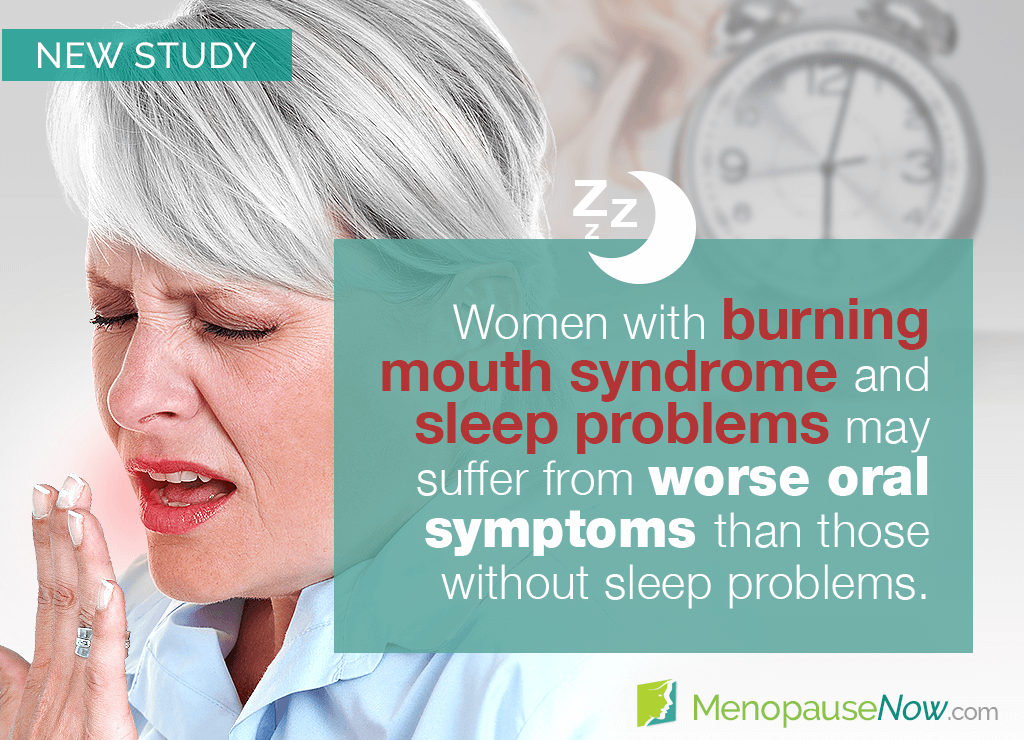It is estimated that up to 40% of menopausal women suffer from burning mouth syndrome.1 Such high prevalence of a relatively poorly understood condition calls for extensive research in order to be able to better address women's needs.
With that goal, a study from the South Korean Kyung Hee University Dental Hospital was conducted to explore possible factors - such as sleep problems - that could potentially affect symptoms of burning mouth syndrome.
Study Design
There were 25 postmenopausal women (at the average age of 55) participating in the study. All of them were diagnosed with burning mouth syndrome, with 15 of them also suffering from sleep problems.
Women filled out various questionnaires regarding the nature of their burning mouth syndrome symptoms. They also underwent physical exams, lab screenings, and a psychiatric assessment.
Study Findings
Researchers observed significantly higher pain intensity scores in women with burning mouth syndrome and sleep problems. In terms of duration, women with sleep problems had more symptoms that lasted for over 2 years than those without sleep issues.
All women reported burning sensation, which was the main complaint. The second most frequent symptom was oral dryness, with a higher proportion of women with sleep problems experiencing it.
In addition, women with both burning mouth syndrome and sleep problems had significantly lower estradiol levels as well as higher follicle-stimulating (FSH) and luteinizing hormone (LH) levels.
What Does It Mean?
The results of this study suggest that women with burning mouth syndrome and sleep problems may experience worse oral symptoms than those who do not have sleep issues.
To the author's knowledge, it was the first study exploring the link between burning mouth syndrome and sleep problems. While the mechanism behind these effects is not yet understood, researchers suggest a combination of psychological and endocrinological interactions that may contribute to the worsening of oral symptoms.
Implementing sleep-improving strategies as well as addressing other associated factors can give menopausal women means to reduce their symptoms more effectively.
Sources
- The Journal of Craniomandibular & Sleep Practice. (2018). Burning mouth syndrome in postmenopausal women with self-reported sleep problems. Retrieved February 17, 2021 from https://www.tandfonline.com/doi/abs/10.1080/08869634.2018.1512549
Footnotes:
- Oral surgery, oral medicine, and oral pathology. (1989). Oral discomfort at menopause. Retrieved February 17, 2021 from https://pubmed.ncbi.nlm.nih.gov/2497421/

